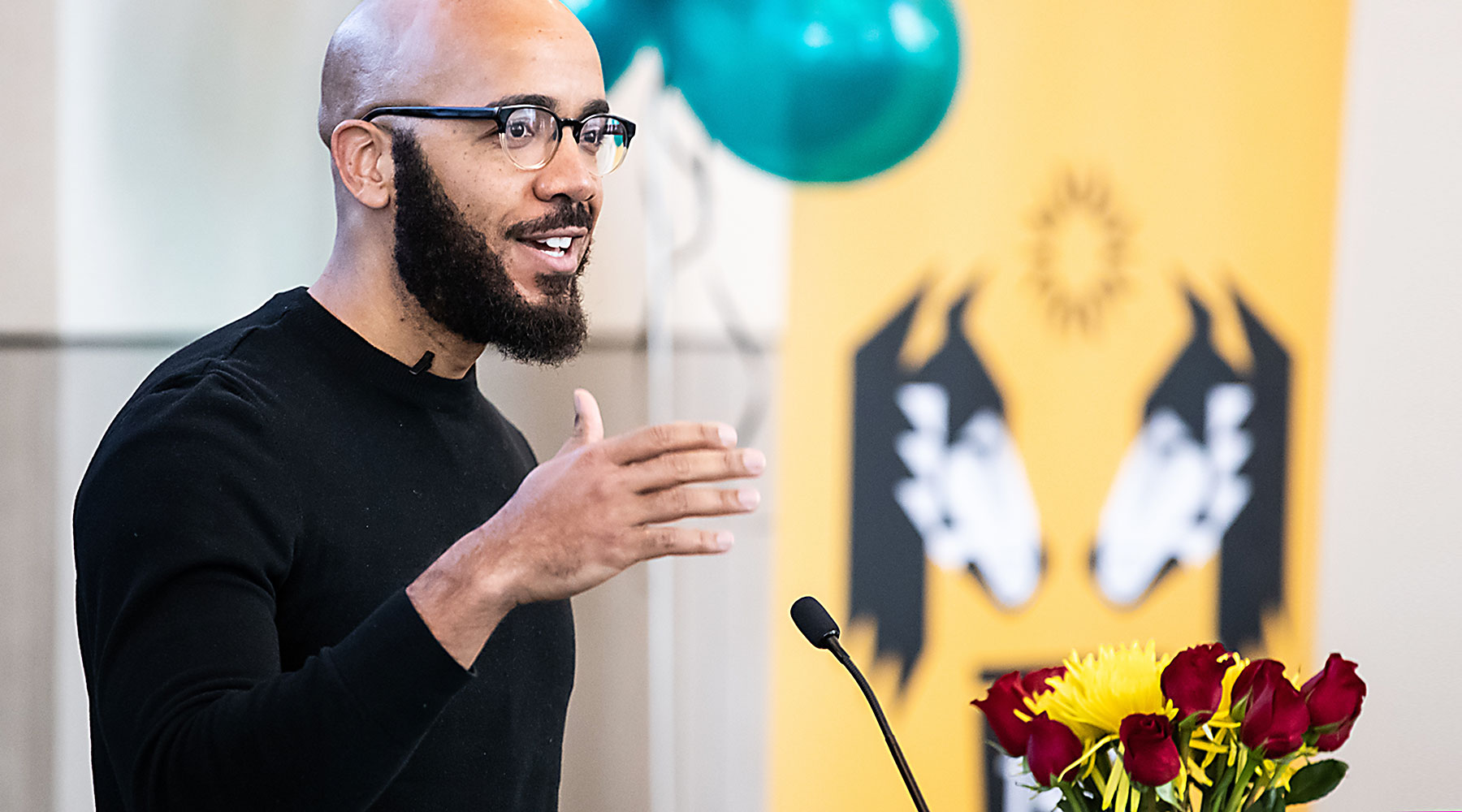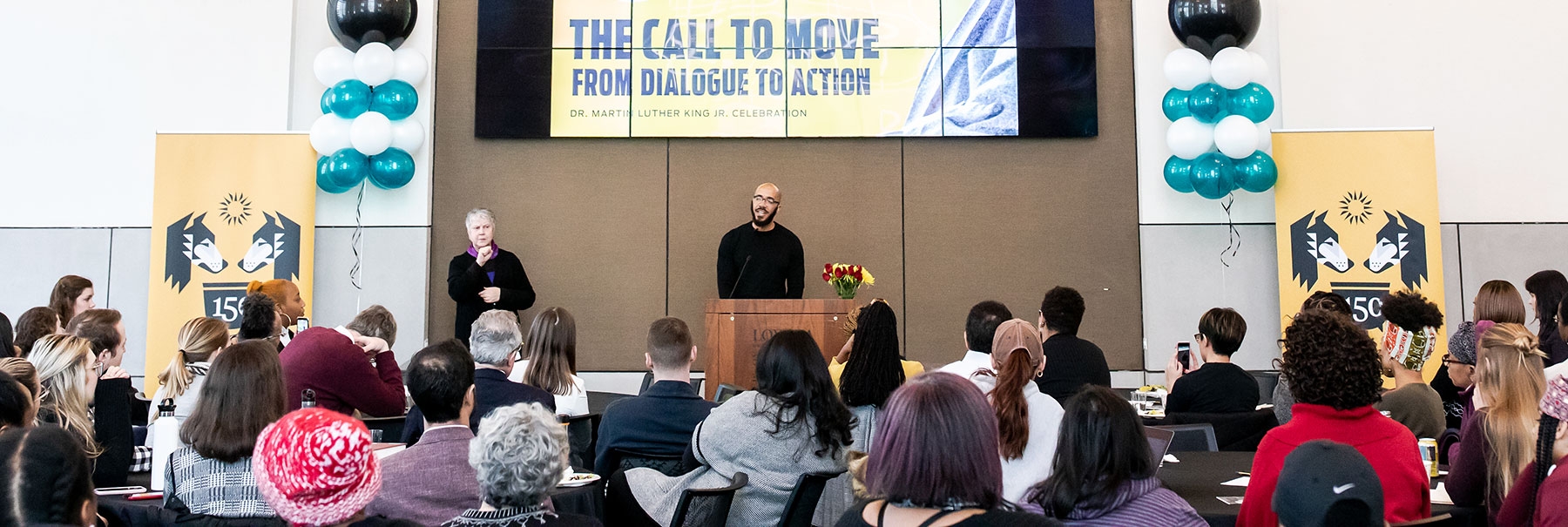Martin Luther King Jr. Celebration 2020 Keynote speaker
Reckoning with racial inequality
Clint Smith is a person who has thought deeply about the history of race and inequality in the United States. Smith, a doctoral student at Harvard University, is also a writer, a teacher, and a slam poet champion. This January, he served as the keynote speaker at Loyola University Chicago’s annual MLK Celebration; his presentation incorporated dynamic poetry and his sharp wit. We caught up with Smith a few days after to discuss the questions he raised while on campus.
You were the 2014 National Poetry Slam champion. What first attracted you to slam poetry?
I came across the poetry slam community in 2008, at this place called the Nuyoricans Poets Cafe. It’s a small poetry cafe on the Lower East Side of Manhattan that has a historic and remarkable reputation of producing some of the most incredible writers coming out of New York and elsewhere. I’d never experienced poetry that felt alive in that way. I was an English major who was reading a lot of folks whose work didn’t necessarily speak to who I was or what I was seeing in the world, how I was experiencing the world. But I remember showing up at Nuyoricans—there was a woman who did a poem about living with cerebral palsy. In about three minutes, the way I thought about that entire demographic of people completely changed.
One of the remarkable things about this art form is that folks can provide an opportunity for you to see and hear work that speaks to pure experiences that might resonate with you, but it can also introduce you to a new set of ideas and perspectives that can be radically transformative. That’s what I experienced that night. Part of what I aim to do is create work that resonates with people on the stage as well as on the page. There’s no need to choose between one or the other.
You mentioned in your talk this idea that, as a society, we don’t talk about or reckon with the effects of slavery as much as we should. Why do you think that is?
Because it makes a lot of people uncomfortable. People are made deeply uncomfortable by the subject of slavery, specifically white people. People don’t want to reckon with the potential of their own complicity or the complicity of their lineage, and what that might say about them.
There’s a Southern Poverty Law Center study that says only 8 percent of U.S. high school seniors are taught that slavery is the cause of the Civil War. I think that’s telling—we don’t speak about this thing that fundamentally shaped the trajectory of this country, in more ways (I’d argue) than anything else. Instead, we create a warped narrative in which this was a blip on the road rather than something that was the road that we paved.
You also use the word “apartheid” deliberately to describe the American experiment. Why is that word important to you, and important to use?
I think “Jim Crow” is a phrase that softens the impact of what that period of time was. Between 1877 (after Reconstruction) and 1965 or 1968, depending on how you define it, we lived in a country in which black people did not have the same fundamental rights of citizenship as their white counterparts. Black people couldn’t buy homes, they couldn’t go to the same schools, they couldn’t go to the same public facilities. The list goes on and on.
Saying “Jim Crow” sounds almost cartoonish, rather than violent. I think it’s important to capture the very real systemic and institutional violence that was pervasive in that period of time. “Apartheid” gets us closer to that.





